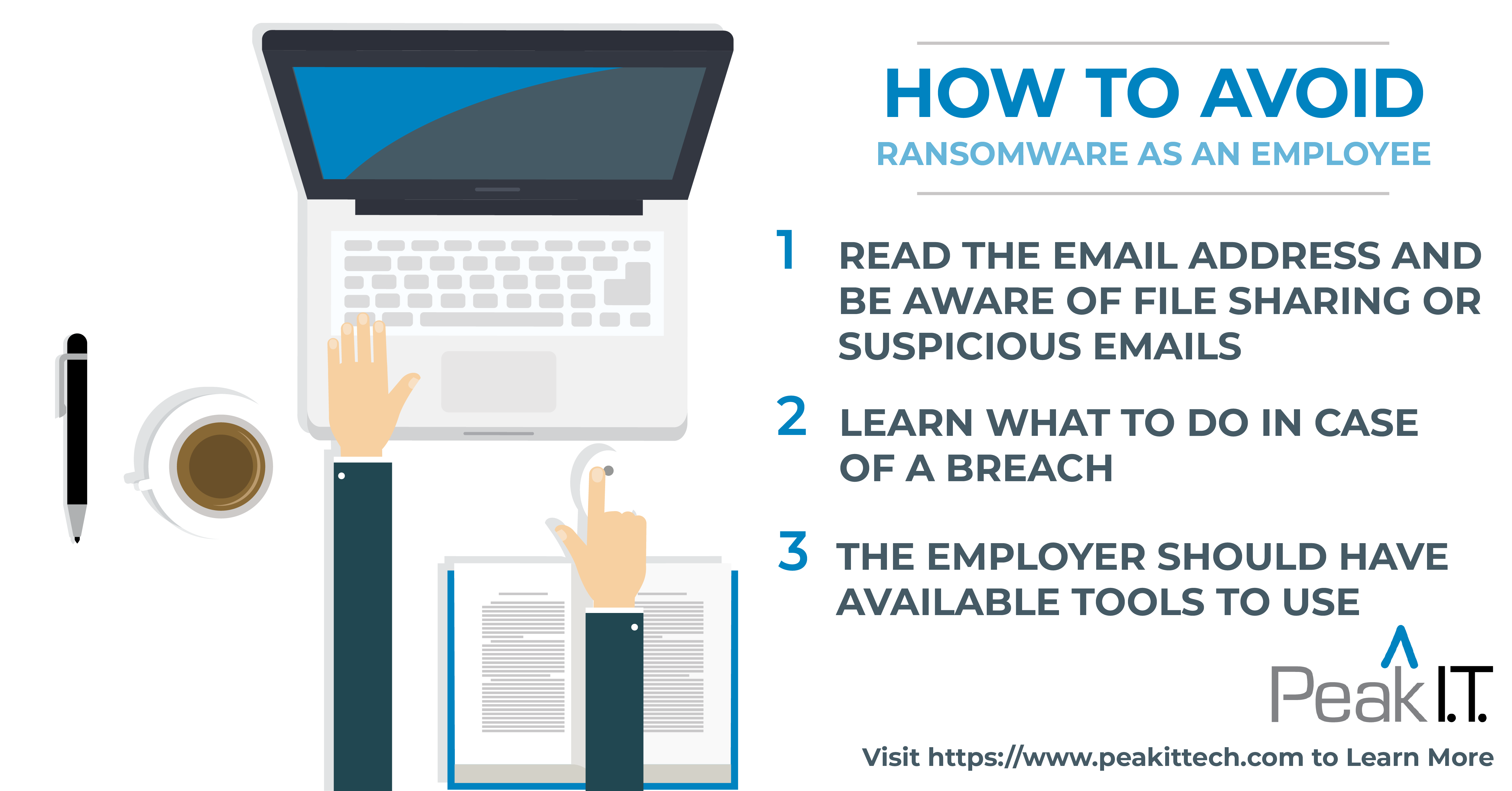As an employee, you are continuously being told about how important cybersecurity is. Do you know what to do specifically? What should you look for? What happens if information is leaked? Can I have a hand in protecting the company that I work for? We will answer these questions today, so that you, as an employee, do not cause any avoid ransomware attacks.
Read the address
One of the most common ways that employees are being targeted is through email. The hacker will use a similar email address as an advisor of yours. For example, if your boss’s real email address is “[email protected]” the fake email address will read “johndoe@!23.com”. At a quick glance, they appear to be the same thing. You might not think twice about responding to a request.
Typically, these emails will contain strange requests. Common phrases are that they are in a “closed door meeting” or they can “only trust you” with whatever task they are asking. The great news is that these are typically very easy to catch. Once you know to look for suspicious emails, you simply need to read who the sender is. Alerting your I.T. team or someone in charge is good practice. This way, everyone can look for fake emails in their inbox.
What if there is a breach?
If you have found yourself in the position where you may have caused a breach, stopping the breach from reaching more and more people is what’s most important. Your next move is to contact whoever is in charge of your cybersecurity. They need to alert everyone in your organization and handle the situation accordingly.
Fearing repercussions of being the cause of a breach is understandable, however, alerting your cybersecurity team quickly can keep the problems to a minimum.
Use the tools available to you
We have laid out some general instances and examples, but if your employer is prepared for preventing a data breach, they will likely have a plan in place. Learn the plan! If you know their protocols, then following them shouldn’t be too complicated. If there isn’t mandatory training when you first start, or regular meetings about what to do or how to get started with securing professional accounts, it may be a good idea to ask. Ignorance is hardly ever an excuse, so use what your company has in place so that you will never be the one to lose information for your company.
For more information on how we can help, click here.

